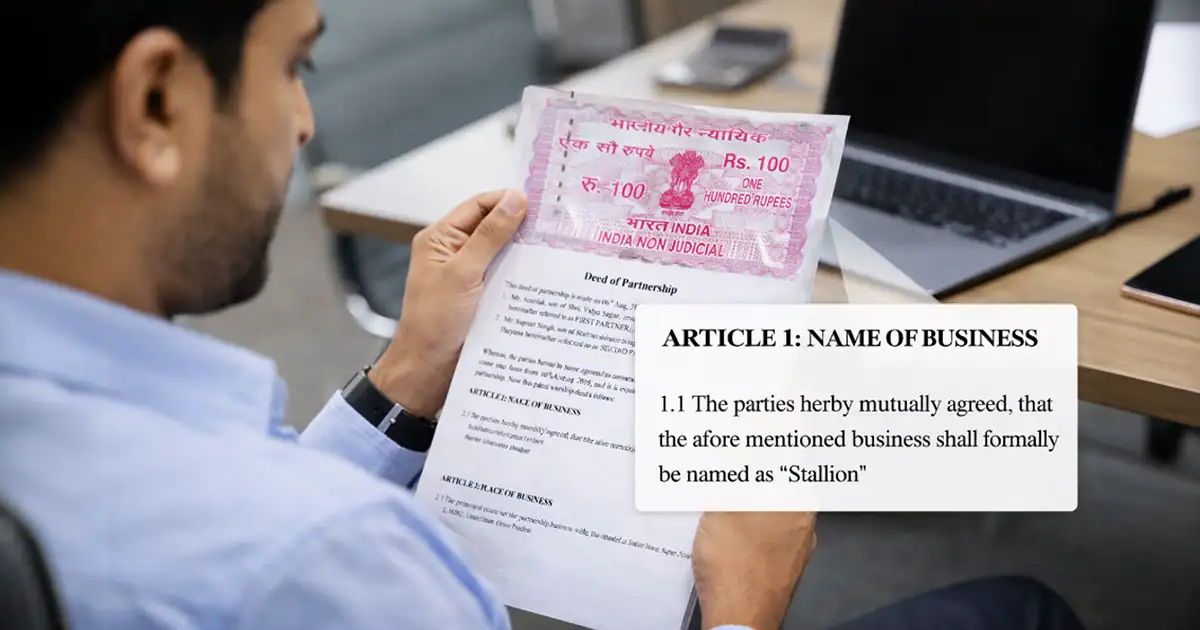Darpan Registration is the process of registering your Non-Governmental Organization (NGO) or Voluntary Organization (VO) on the NGO Darpan portal managed by NITI Aayog. Darpan is a key digital platform that connects NGOs and VOs with various government agencies in India.
The Darpan portal aims to make India’s non-profit sector more transparent and accountable. It also helps improve communication between the government and these organizations.
The portal is managed by NITI Aayog. NITI Aayog (National Institution for Transforming India) is the Indian government's primary policy think tank. The platform creates a centralized and comprehensive database of NGOs and VOs across the country.
Darpan Registration for NGOs & Trusts
When an NGO or Trust is first formed, it needs to be registered under specific laws, such as:
- Societies Registration Act, 1860,
- Indian Trusts Act, 1882, or
- Section 8 of the Companies Act, 2013.
This initial registration gives the organization its legal identity.
DARPAN registration is a separate process where an already registered NGO or voluntary organization gets listed on a central government portal. The main goal is to build a national database, increase transparency, and allow NGOs to apply for government schemes and funding.
It's crucial to understand that Darpan registration is not the same as the initial registration of an NGO or Trust.
Applicability of Darpan Registration
Darpan registration applies to:
- Non-Governmental Organizations (NGOs): This term broadly covers organizations that are not part of the government and are typically involved in social welfare, development, or charitable activities.
- Voluntary Organizations (VOs): This is often used interchangeably with NGOs and refers to organizations that operate voluntarily, driven by a mission to serve the public.
- Trusts: Public charitable trusts are also eligible and encouraged to register on the Darpan portal.
- Societies: Organizations registered under the Societies Registration Act, 1860 (or state equivalents) can also register.
- Section 8 Companies: Non-profit companies registered under Section 8 of the Companies Act, 2013, are also covered.
In short, any genuine non-profit or voluntary group looking for funding or partnerships from government departments should consider registering on the Darpan portal.
Key Points of NGO Darpan Portal Registration
Here are the key aspects to remember about NGO Darpan portal registration:
- Centralized Database: It serves as a national repository of information about NGOs/VOs in India, fostering transparency and accountability.
- Unique ID: Upon successful registration, each organization receives a unique Darpan ID. This ID is essential for applying to various government schemes and grants.
- Pre-requisite for Government Grants: Many government ministries and departments now mandate Darpan registration for NGOs/VOs applying for financial assistance or partnership in their programs.
- Enhanced Credibility: Registration on the portal can enhance the credibility of an organization in the eyes of government bodies and potential donors.
- Simplified Application Process: It aims to streamline the process of applying for government schemes by providing a common platform.
- Information Sharing: The portal allows for the sharing of information about an organization's activities, funding, and impact, promoting greater public trust.
- Free of Cost: The registration process on the NGO Darpan portal is free.
Governing Laws Behind Darpan Registration
While NITI Aayog manages the portal, the organizations themselves remain governed by the laws under which they were originally established.
These include:
- The Societies Registration Act, 1860: This act governs the registration and functioning of societies formed for literary, scientific, or charitable purposes. Many NGOs are registered as societies under this act.
- The Indian Trusts Act, 1882: This act deals with the law relating to private trusts and trustees. Public charitable trusts, however, are often governed by state-specific Public Trusts Acts (e.g., Bombay Public Trusts Act, 1950) or the general principles of equity.
- The Companies Act, 2013 (specifically Section 8): This section allows for the incorporation of companies with charitable objects, where any profits are applied solely for promoting those objects and no dividend is paid to their members. These are often referred to as Section 8 companies.
- The Foreign Contribution (Regulation) Act, 2010 (FCRA): Though it doesn't directly govern Darpan registration, this law is important for NGOs that receive money from foreign sources.
- RBI's KYC Directions, 2016: This act is part of India's broader efforts to prevent money laundering and terrorist financing. These directions primarily mandate financial institutions (banks, NBFCs, etc.) to conduct due diligence on their customers.
NGOs and Trusts must follow the laws they are registered, along with the rules required for the Darpan registration.










